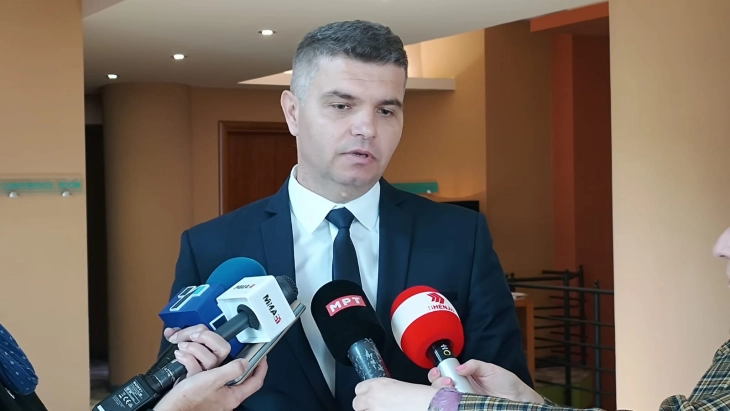Kitanovikj: Raising visibility and importance of smaller communities and equitable representation in institutions
- Minority ethnic communities in the country make up somewhere over 10 percent and face a wide array of challenges, including equitable representation. The Agency for Community Rights Realisation will try to raise visibility and importance of those communities, which are an important part of the society of the Republic of Macedonia, the new Director of the Agency for Community Rights Realisation, Dalibor Kitanovikj, said on Tuesday.

Skopje, 22 October 2024 (MIA) - Minority ethnic communities in the country make up somewhere over 10 percent and face a wide array of challenges, including equitable representation. The Agency for Community Rights Realisation will try to raise visibility and importance of those communities, which are an important part of the society of the Republic of Macedonia, the new Director of the Agency for Community Rights Realisation, Dalibor Kitanovikj, said on Tuesday.
"Minority ethnic communities in the country make up somewhere over 10 percent, and the problems they face are much the same as in terms of fair representation in education, culture, and media and cultural heritage sector. Minority ethnic communities face an array of issues regarding their visibility. The Agency and Government will try to raise the visibility and importance of those communities, which are an important part of the society of the Republic of Macedonia, for the construction of a multicultural state where in addition to the Macedonian and ethnic Albanian communities there are also the communities which we will fight for," Kitanovikj said after attending the forum entitled "Analysis of the functionality, effectiveness and achievements of the Participatory Forum," organized by the Agency for Community Rights Realization cooperation with the OSCE Mission in Skopje.

In response to the question of whether the law on fair representation of communities will contribute more to the rights of smaller communities, Kitanovikj said he believes that this political issue is often used for daily political purposes.
"It's a question that's used a lot in daily politics. Some use it in a positive connotation, others in a negative one. We are facing the challenges that smaller communities face in the context of equitable representation and will fight for communities in accordance with their quality and education to be present in institutions. We leave that to the Constitutional Court and the Ministry to decide, we are here to support whatever the government supports," Kitanovikj explained.
In response to journalists about statistics on the representation of minority ethnic communities in state and public administration, he said that the Ministry of Education and Science, together with the Ombudsman and Agency, all collect data, but they, he added, change from year to year.
"We've had certain exodus from the state, certain institutional changes, and lately, it is not that much of a trend in the institutions. At the end of the year, percentages of the actual data collection are released, and then we can share them with the public," noted Kitanovikj. ssh/ba/
Photo: MIA







